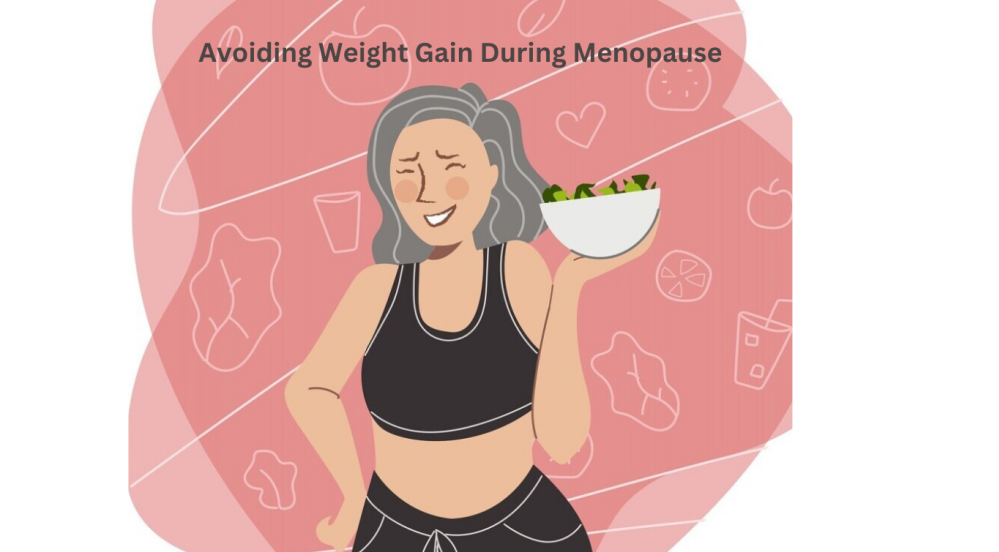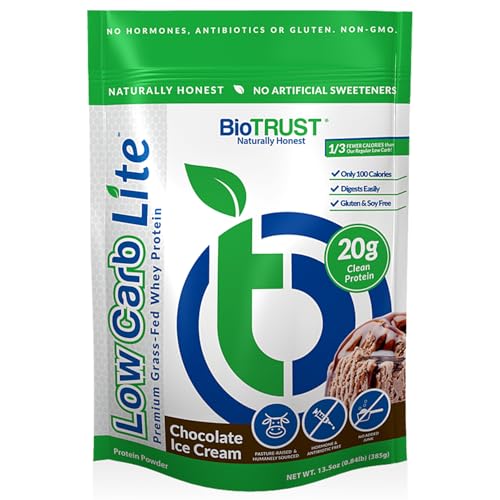How to avoid menopause weight gain is one of the biggest concerns for women navigating this natural phase of life. Menopause often brings unexpected challenges—weight gain being one of the most common.
This guide provides practical, science-backed strategies to prevent weight gain during menopause, addressing hormonal changes, slowed metabolism, and lifestyle shifts. Whether your goal is to manage menopause weight or maintain energy and fitness, these tips empower you to take control of your health and well-being.
By implementing these steps, you can minimize menopause-related weight gain and move through this stage of life feeling strong, confident, and vibrant.

How to Avoid Menopause Weight Gain
Table of Contents
How to Avoid Menopause Weight Gain: Practical Strategies
Weight gain during menopause is common, but it’s not inevitable. By understanding the underlying causes and adopting smart habits, you can successfully manage your weight and overall health. Here’s how to approach it:
1. Prioritize Protein to Maintain Muscle
Muscle mass naturally declines with age, especially during menopause. Including high-quality protein in your diet helps preserve lean muscle, which boosts metabolism and supports weight management. Focus on sources like lean meats, fish, eggs, beans, and Greek yogurt.
2. Strength Training Is Key
One of the most effective ways to prevent menopause-related weight gain is through strength training. Exercises like squats, lunges, push-ups, and dumbbell routines help maintain muscle, strengthen bones, and burn more calories even at rest.
3. Manage Carbohydrates Wisely
Refined carbs and sugary foods can exacerbate weight gain, especially around the midsection. Opt for complex carbs like vegetables, whole grains, and legumes to stabilize blood sugar and prevent fat accumulation.
4. Stay Active Every Day
Cardiovascular activity—walking, swimming, or cycling—complements strength training. Regular movement helps counteract metabolic slowdown and supports heart health, energy levels, and mood.
5. Prioritize Sleep and Stress Management
High stress and poor sleep can elevate cortisol, a hormone linked to belly fat. Techniques like meditation, yoga, deep breathing, and good sleep hygiene can reduce stress and help maintain a healthy weight.
6. Hydration and Mindful Eating
Drinking plenty of water supports metabolism and reduces overeating. Pair hydration with mindful eating practices, such as eating slowly, recognizing hunger cues, and limiting distractions at meals, to better manage calorie intake.
7. Track Your Progress
Keeping a journal or using an app to log meals, activity, and symptoms can help you spot patterns. Tracking makes it easier to see which habits support weight maintenance and which may need adjusting.
8. Seek Professional Guidance if Needed
Sometimes, weight gain during menopause can be stubborn despite healthy habits. Consulting a nutritionist, personal trainer, or healthcare provider can help tailor strategies specifically for your body and lifestyle.
Why Protein Becomes More Crucial During Menopause
As menopause sets in, your body undergoes significant changes. With estrogen levels declining, maintaining hormone balance becomes more challenging. This is where protein plays a key role. It acts as a building block, supporting hormone production and regulation, which can help you feel more balanced during this transition.
Muscle mass naturally decreases with age, and this decline accelerates during menopause. Less muscle means a slower metabolism, which can contribute to weight gain. By ensuring sufficient protein intake, you can preserve muscle, maintain a healthy metabolic rate, and support efforts in how to avoid menopause weight gain.
Bone health is another critical concern. Estrogen helps maintain bone density, and as levels drop, bones can become more fragile, increasing the risk of fractures. Protein—especially when combined with calcium and vitamin D—supports stronger bones and may help reduce the risk of osteoporosis, keeping you healthier long-term.
Menopausal symptoms like hot flashes, mood swings, and sleep disruptions can make daily life challenging. Protein can help mitigate these issues by stabilizing blood sugar, improving energy levels, and helping manage mood fluctuations. A consistent protein intake can make a tangible difference in how you feel day-to-day.
Being proactive with your diet, particularly regarding protein, is essential for navigating menopause successfully. Include lean meats, fish, dairy, legumes, and nuts to ensure a balanced intake. Small, consistent changes can lead to better weight management, increased energy, and overall improved well-being, helping you take control of your health during this phase.
Experience delicious, low-carb protein that actually works! BioTrust Low Carb Protein Powder delivers grass-fed protein, digestive enzymes, and minimal carbs.
Lesser-Known Benefits of Protein for Menopausal Women
Protein isn’t just for muscles—it offers a range of benefits that can help women navigate menopause more smoothly. Understanding these advantages can make a real difference in how to avoid menopause weight gain and improve overall well-being.
1. Supports Skin Health
As estrogen levels decline, skin can lose elasticity and firmness. Protein, especially from collagen-rich sources, helps maintain skin structure, reducing the appearance of wrinkles and keeping skin supple and resilient.
2. Boosts Cognitive Function
Memory lapses and brain fog are common during menopause. Amino acids, the building blocks of protein, are essential for neurotransmitter function. A protein-rich diet supports brain health, helping you stay sharp and focused.
3. Promotes Heart Health
Changing hormone levels can make managing cholesterol and heart health more challenging. Protein—particularly from plant-based sources—can help maintain healthy cholesterol levels and support cardiovascular function, contributing to long-term heart wellness.
4. Enhances Weight Management
Protein has a higher thermic effect than fats or carbs, meaning your body burns more calories digesting it. This boosts metabolism and helps control appetite, making it easier to manage weight during menopause. Protein-rich foods also promote satiety, reducing overall calorie intake and supporting healthy weight maintenance.
The lesser-known benefits of protein make it a powerful ally during menopause. From supporting skin, brain, and heart health to helping you maintain a healthy weight, incorporating a variety of protein sources into your meals can make this transition smoother and more manageable. By prioritizing protein, you’re taking a crucial step in how to avoid menopause weight gain while improving overall well-being.
Choosing the Right Protein Sources During Menopause
When it comes to how to avoid menopause weight gain, choosing the right protein sources is essential. Not all protein is created equal, and incorporating a variety can provide maximum benefits for muscle, metabolism, and overall health.
Animal-Based Proteins
Chicken, turkey, fish, eggs, and dairy are packed with essential amino acids, making them excellent for muscle maintenance and recovery. Lean meats and fatty fish, like salmon, also provide heart-healthy fats, which are particularly important during menopause.
Plant-Based Proteins
Plant-based options such as beans, lentils, tofu, tempeh, quinoa, and nuts are rising in popularity—and for good reason. These sources are rich in fiber, aiding digestion, promoting fullness, and supporting weight management during menopause. Plant-based diets have also been linked to a lower risk of heart disease, an added bonus as hormone levels shift.
Variety Is Key
Mixing different protein sources ensures you receive a broad spectrum of nutrients. Simple swaps, like adding a handful of nuts to yogurt or tossing beans into a salad, can make a big difference. Not only does variety enhance flavor, but it also supports metabolism, muscle maintenance, and overall well-being.
Dining Out Tips
Eating out doesn’t have to derail your protein goals. Choose dishes featuring grilled chicken, fish, or plant-based proteins. Opt for sides like quinoa, beans, or vegetables instead of fries or pasta, and watch portion sizes. Avoiding heavy, creamy sauces helps you stay on track while still enjoying your meal.
Supplements and Protein Powders
Protein powders can be a convenient way to meet your needs, especially with a busy lifestyle. Look for products with minimal additives, sugar, and artificial ingredients.
- Low-carb protein supplements provide essential protein benefits without extra calories—a great option for supporting weight management and stable blood sugar.
- Whey protein works well for those who tolerate dairy, while pea or hemp protein offers excellent plant-based alternatives.
Always consider consulting a healthcare provider to determine the best protein sources for your needs. By prioritizing high-quality protein, you’re taking a crucial step in how to avoid menopause weight gain while supporting muscle, metabolism, and overall health.
Experience delicious, low-carb protein that actually works! BioTrust Low Carb Protein Powder delivers grass-fed protein, digestive enzymes, and minimal carbs.
Great Additional Resources:
Best Protein Powder for Women’s Weight Loss
Quantum Nutrition Labs Review – Hype, Hope, or Health Scam?
Practical Tips for Increasing Protein Intake Safely
When it comes to how to avoid menopause weight gain, setting realistic protein goals is the first step. You don’t need to overdo it—nutritionists typically recommend 0.54 to 0.68 grams of protein per pound of body weight. For example, a woman weighing 150 pounds should aim for roughly 82–102 grams of protein per day. Adjust this based on your activity level and consult a healthcare provider for personalized guidance.
Easy Ways to Sneak Protein Into Your Meals
Incorporating protein doesn’t have to be complicated:
- Breakfast: Greek yogurt topped with nuts and seeds, or a smoothie blended with protein powder.
- Lunch: Add grilled chicken, tofu, or beans to your salad.
- Dinner: Include lean fish, lentils, or legumes.
- Snacks: Think a handful of nuts, a slice of cheese, or a clean, protein-rich bar.
Avoiding Excess Protein
While protein is essential, too much can strain the kidneys and liver, particularly if you have underlying health conditions. Spread your protein intake evenly throughout the day instead of consuming a large amount at once. This supports metabolism and helps with weight management during menopause.
Stay Hydrated
Water is crucial when increasing protein intake. It aids in metabolizing protein and flushing out waste products. If you’re adding protein supplements to your diet, make sure you’re drinking plenty of water throughout the day.
Seek Personalized Guidance
Consulting with a healthcare provider ensures your protein plan is tailored to your individual needs. They can help you optimize protein intake for muscle maintenance, metabolism, and managing menopause-related weight gain, taking into account any specific health concerns or dietary restrictions. Personalized advice can make a significant difference in maximizing the benefits of protein during menopause.
Strength Training: Your Secret Weapon Against Menopause Weight Gain
One of the most effective ways to prevent menopause-related weight gain is through regular strength training. As estrogen levels drop, muscle mass naturally declines, slowing metabolism and making weight management more difficult. Incorporating resistance exercises helps preserve lean muscle, boost calorie burn, and support overall metabolic health.
Strength training doesn’t have to be complicated. Simple exercises like squats, lunges, push-ups, and dumbbell routines can make a significant difference. Even bodyweight exercises performed consistently can help maintain muscle and strength.
Cardiovascular activity also complements strength training. Activities like walking, swimming, or cycling support heart health, increase calorie expenditure, and improve mood. Combining cardio with resistance exercises is one of the most effective ways to manage weight during menopause.
Exercise also helps combat other menopausal symptoms. Regular movement can reduce hot flashes, improve sleep, and stabilize energy levels, making it easier to stick to a healthy routine.
For the best results, aim for strength training at least 2–3 times per week, alongside regular cardio and flexibility exercises. By making exercise a consistent part of your lifestyle, you’re taking a proactive step in how to avoid menopause weight gain while supporting your overall well-being.
Avoiding Weight Gain During Menopause: Summary
Understanding how to avoid menopause weight gain starts with selecting the right protein sources. Animal-based proteins like chicken, fish, eggs, and dairy provide essential amino acids for muscle maintenance and recovery, while lean meats and fatty fish supply heart-healthy fats. Plant-based proteins, including beans, lentils, tofu, quinoa, and nuts, add fiber, support digestion, and help lower the risk of heart disease.
Incorporating a variety of proteins ensures a balanced intake of nutrients. Simple swaps—like adding nuts to yogurt or tossing beans into salads—can make a meaningful difference. Dining out? Choose grilled proteins and fiber-rich sides like quinoa or beans to stay on track.
Protein supplements, such as low-carb or whey options, can be convenient for busy lifestyles but should be selected carefully to avoid excess additives. BioTrust offers a wide range of high-quality, low-carb protein supplements ideal for supporting weight management during menopause.
Aim for 0.54 to 0.68 grams of protein per pound of body weight. For example, a woman weighing 150 pounds should consume 82–102 grams of protein daily. Spread your intake evenly throughout the day and stay well-hydrated to maximize benefits.
Finally, always consult a healthcare provider to tailor your protein intake to your individual needs. Taking these steps can make a significant difference in preventing menopause-related weight gain while supporting muscle, metabolism, and overall well-being.
Experience delicious, low-carb protein that actually works! BioTrust Low Carb Protein Powder delivers grass-fed protein, digestive enzymes, and minimal carbs.
Thanks for reading, we look forward to your visit at EliteHealthAffiliates.com – Your Health and Wellness Authority!


